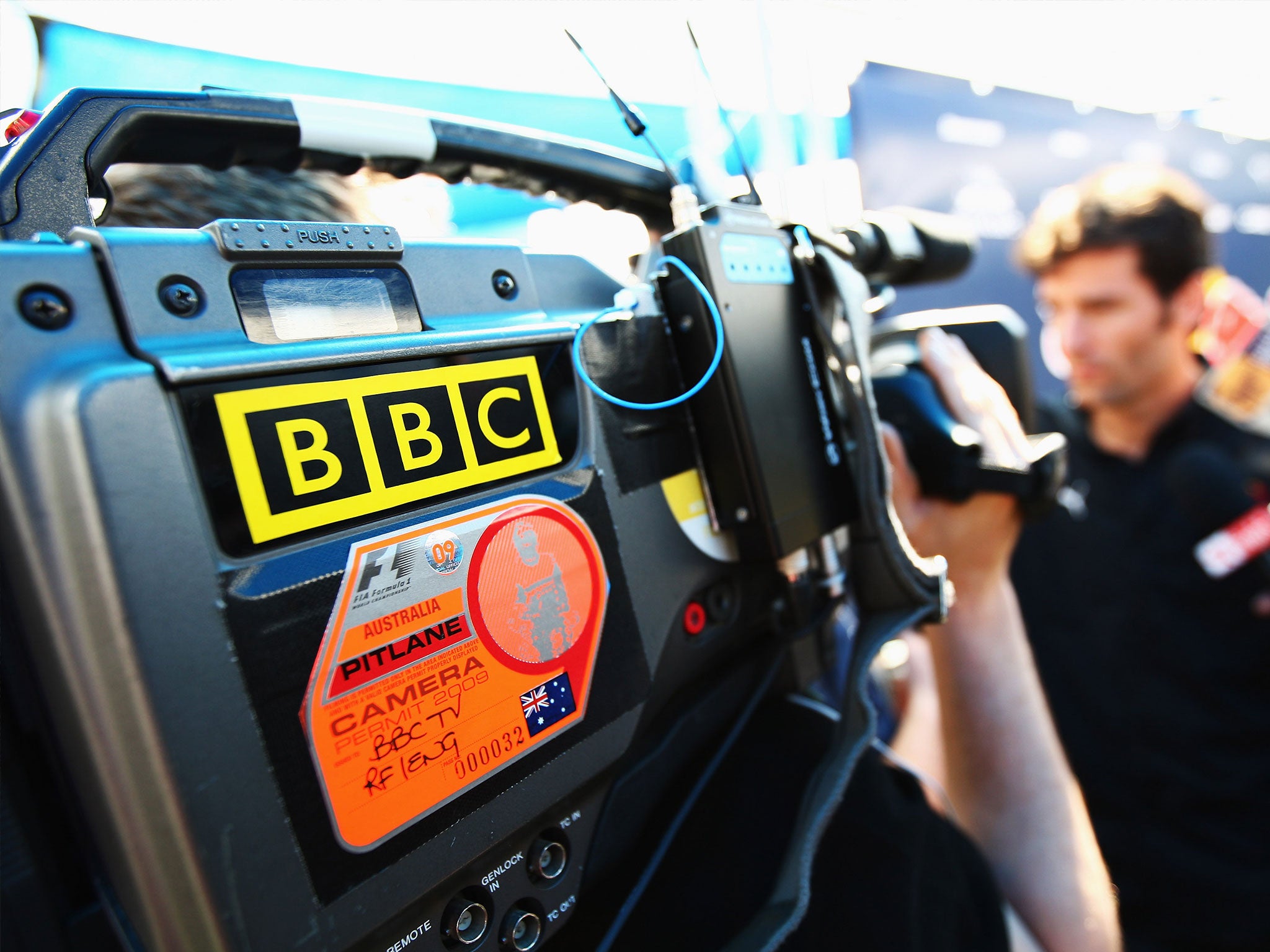It's shameful that on the same day the BBC published mega-salaries, its lowest paid workers begged for a living wage
In the wake of the report, the union representing low-paid production workers at the BBC stepped up demands for a minimum salary of £20,000 compared to the current £16,000. Meanwhile, the average Brit is earning just 1.25 per cent of what Chris Evans takes home

The BBC – public broadcaster of the free world, beacon of hope for journalistic integrity and a cornerstone for progressive reporting – has just dealt a seismic body blow to corporate Britain’s commitment to equality just when we need it most.
An unflattering overview of how much its pays its top earners, published today, shows that Chris Evans – the man with the organisation’s juiciest pay package – is four times more valuable than top-paid woman Claudia Winkleman. The Strictly Come Dancing presenter earns between £450,000 and £499,999 — already grossly more than most of us will make in a decade — but Evans, the Radio 2 breakfast show host, trumps her by a damning multiple, raking in between £2.2m and £2.25m a year.
The appalling contrasts go on.
The second highest female earner is One Show presenter Alex Jones, making between £400,000 and £449,999. Her co-presenter Matt Baker squeezes in one bracket higher. Political editor Laura Kuenssberg pockets between £200,000 and £249,999 while presenter Huw Edwards takes home between £550,000 and £599,999. Fiona Bruce is on £350,000 to £399,999.
Overall second-placed earner Gary Lineker took home between £1.75m and just under £1.8m while Clare Balding made do with a – to you and me chunky, but in this context frankly insulting – £150,000 to £199,999.
Seven individuals are paid more than half a million pounds a year: Evans, Lineker, Graham Norton, Jeremy Vine, John Humphrys, Huw Edwards and Steve Wright. All are male. All are white. All are able-bodied. Not on the list, which includes everyone making at least £150,000: Sarah Montague, Emily Maitlis and Louise Minchin, who is the current face of BBC One’s Breakfast.
As with FTSE 100 CEOs, you can debate ad nauseam the economic worth that the biggest earners really offer a brand and a company, how much they contribute to ratings and what their following does for the organisation, but there’s no arguing about the fact that discrimination is rampant and that the BBC has for decades had a paramount responsibility to do something about it.
The broadcaster said on Wednesday that it had set a 2020 target for all its lead and presenting roles to be equally divided between men and women, but while that has been a complex task for years, it might have just become a whole lot trickier.
Being able to promote women into top jobs relies on a talent pool of ambitious, motivated and intelligent females being available to filter up the ranks. I would forgive anyone with those qualities for giving up on the BBC altogether after reading Wednesday’s figures.
What motivation would you still be able to muster for making do with freelance work, being available at unsociable hours and scraping by on minimal pay if the end goal is a super-senior job and half the salary your equally qualified white male colleague gets?
In the wake of the report, the union representing low-paid production workers at the BBC stepped up demands for a minimum salary of £20,000 compared to the current £16,000. That underscores just how brutally the BBC fulfils its role as a poster child for inequality in Big Business Britain.
The UK is one of the most unequal countries in the developed world when it comes to pay, and not just on a gender basis. On average, the CEOs of the UK’s largest 100 companies take home around 190 times what the average employee takes home. The average UK wage is around £27,500 a year, which means that even at the very bottom of Chris Evans’ pay range, the average Brit is earning just 1.25 per cent of his pot. The overall gender pay gap for full-time workers is still thought to be around 14 per cent and, despite efforts to appoint more women to top jobs, progress is sluggish and in some cases stalling.
The BBC is by far not the only or worst offender, but perhaps it is the most visible.
Mark Learmonth, professor of organisation studies at Durham University’s Business School, stated succinctly that the BBC report is a “vivid illustration of a phenomenon that social scientists have been going on about for years: how men are overvalued and women undervalued even when they do exactly the same thing.”
He notes that we still rarely examine these prejudices, but that men have come to be culturally associated much more strongly than women “with what is 'prestigious', 'deep' and 'important'”. An inconvenient truth, to steal the phrase.
Learmonth says that these associations are regularly dismissed – “especially by powerful men” – and that the BBC exposé should serve to raise awareness of just how prevalent discrimination like this is.
The UK’s media landscape has long been the envy of other countries, thanks to the quality of the BBC’s coverage and unwavering dependability. After Wednesday’s report, that could well change.
Yes, that would be tragic. Especially in times of political turmoil and deep divisions, where much of the global media landscape is controlled by moguls and politicians, we need a solid institution with rock-hard morals and professionalism at its core.
But we also need an organisation that can keep up with necessary societal changes and reflect the communities we live in – both in terms of the principles it portrays on screen and in terms of those it practices when the studio lights go out.

Join our commenting forum
Join thought-provoking conversations, follow other Independent readers and see their replies